Turning Point: Black Lives Matter organizers say right-wing backlash was expected as movement grew
This report is part of "Turning Point," a groundbreaking series by ABC News examining the racial reckoning sweeping the United States and exploring whether it can lead to lasting reconciliation.
During a Black Lives Matter march in late May, Nia Miranda says she decided to take a stand when she saw something that marred what she described as "a beautiful protest."
Miranda said she spotted two women, both apparently white and dressed in black, tagging the exterior of a Starbucks at The Grove mall in Beverly Hills. The 30-year-old filmmaker and actress said she started recording video on her cell phone and approached the pair, who were spray painting the letters "BLM" on the front of the store.
“I remember looking around and realizing what they were doing and that no one else was saying anything. I had to capture it and confront them at the same time," Miranda told ABC News. "I knew that I had to say something because if the news would have reported the vandalism without seeing who did it, I know who they would have said committed that crime: It would have went on Black people and it would have been told that the protesters became rioters and it became looting, and that wasn’t the case at all."
The Los Angeles Police Department said the mostly-peaceful protest on May 30 in Beverly Hills devolved into multiple incidents of vandalism and looting of stores at The Grove, on ritzy Rodeo Drive and elsewhere in the city, leading to 500 arrests. It was unclear if the women Miranda confronted were among those arrested.
Miranda's video instantly went viral and inspired Grammy-winning music producer Skrillex to write a song "Sullen Sunday" featuring the raw words of Miranda: "When they see the vandalism on these places, know that it wasn't us. And when you see stuff like that you're supposed to stand up and say something."
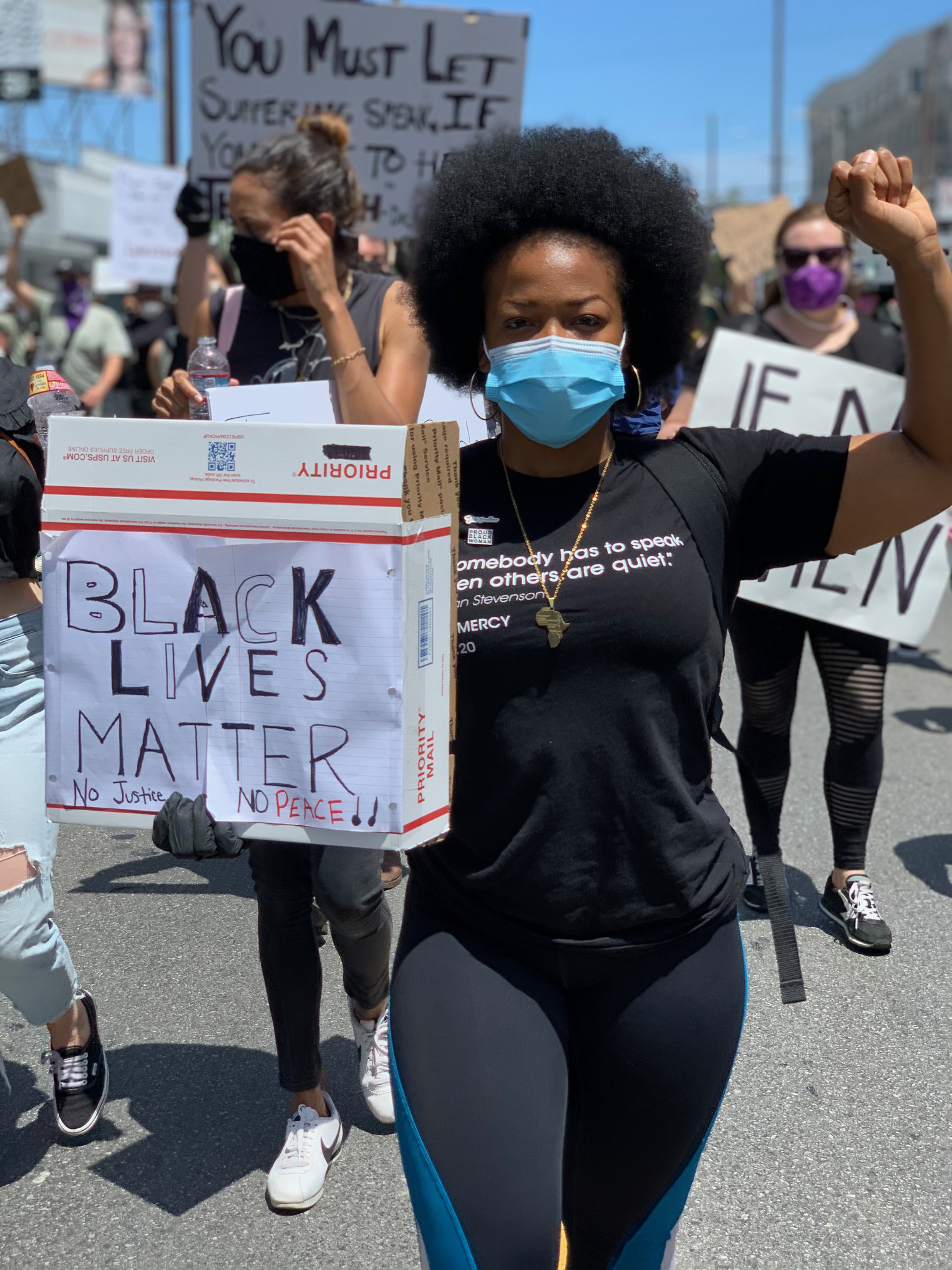
As support across the country has skyrocketed for the Black Lives Matter movement in the wake of George Floyd's death at the hands of Minneapolis police officers, so too, has a backlash against the group -- fueled by months of protests that have, at times, descended into violence and destruction, often instigated by those unaffiliated with the movement.
Some law enforcement officials said the emergence of an anti-police atmosphere has led to low morale and a drop in enforcement. In addition, BLM's detractors have gone to great lengths to conflate the violence, looting and general rise in crime that have appeared in some cities in recent months with the push for equal rights and police reform.
BLM organizers say they are currently enduring a smear campaign that is being ratcheted up in the waning days of the presidential election, with lawmakers, including President Donald Trump, branding BLM protesters as "terrorists," "Marxists" and "left-wing radicals" bent on destroying the country.
Trump's surrogates such as Rep. Matt Gaetz, R-Florida, U.S. Sen. Marsha Blackburn, R-Tenn., and Trump's personal lawyer, Rudy Giuliani, have all issued statements or Tweets slamming BLM as a radical Marxist movement out to destroy the country. Giuliani told reporters at the White House in August, that “Black Lives Matter has been planning to destroy the police for three years."
In a more measured response, U.S. Attorney General William Barr released a statement on May 30 that attempted to separate the rioters from the peaceful protesters. "With the rioting that is occurring in many of our cities around the country, the voices of peaceful protest are being hijacked by violent radical elements,” Barr said, adding that “groups of outside radicals and agitators are exploiting the situation to pursue their own separate and violent agenda.''
Melina Abdullah, co-founder of Black Lives Matter Los Angeles and part of the movement's global leadership, told ABC News the backlash was expected.
“We understand what they’re doing. We understand that they understand that Black Lives Matter has now been recognized as the largest social movement in global history and that scares people," Abdullah said. "That scares folks who are invested in making the world more racist, not less and making the world oppressive not less and folks who are tethered to a system of policing that’s oppressive and brutal and violent."
'Radical movement,' critics say
Speaking at the National Archives Museum in Washington on Sept. 17, Trump, who has been portraying himself as a law-and-order candidate in his re-election bid, took aim at what he called the "radical movement" behind nationwide protests over police disproportionately violating the rights of Black people.
“Left-wing mobs have torn down statues of our founders, desecrated our memorials and carried out a campaign of violence and anarchy,” Trump said without specifically naming BLM. “Whether it is the mob on the street or the cancel culture in the boardroom, the goal is the same: to silence dissent, to scare you out of speaking the truth, and to bully Americans into abandoning their values, their heritage and their very way of life."
Eight days later at his campaign's Black Economic Empowerment conference in Atlanta, where he presented his so-called "platinum plan" for the Black community, Trump ramped up his attacks, zeroing in on BLM.
“It’s really hurting the Black community,” Trump said in a speech. “This is an unusual name for an organization whose ideology and tactics are right now destroying many Black lives.”
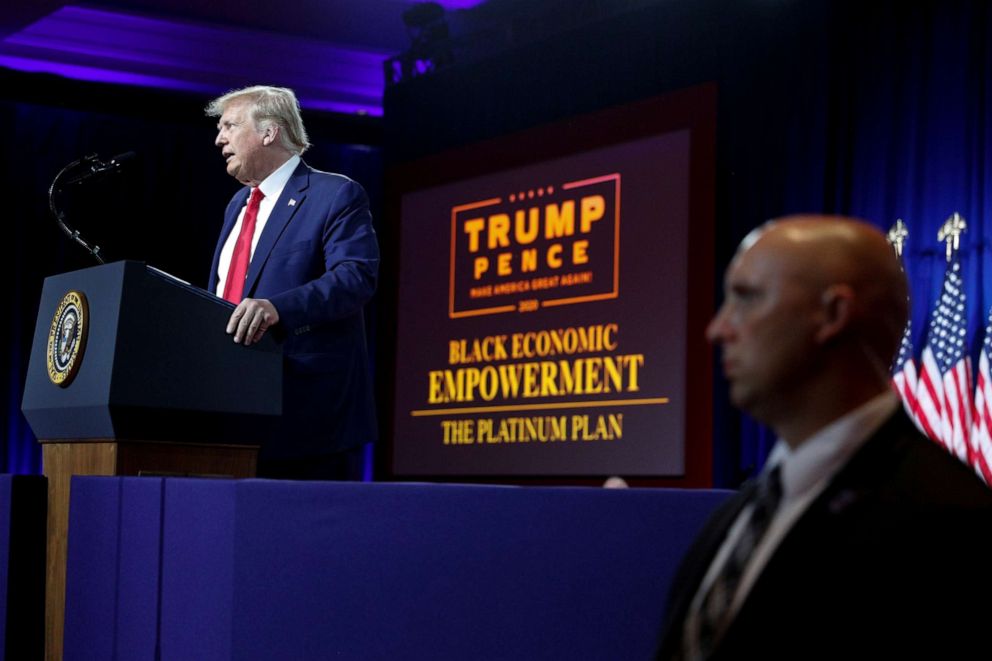
Trump claimed Black Lives Matter wants to “achieve the destruction of the nuclear family."
“This is not the agenda of the Black community. This is the agenda of an extreme socialist or worse, you know what the other word is -- Marxist, communist -- this is the extreme socialist left, but beyond that in my opinion,” Trump said.
While organizers of BLM, which is a decentralized movement made up of more than 150 different groups, did not specifically respond, Trump's allegation appear to have been taken out of context from a "what we believe" statement on the Black Lives Matter Global Network's website, which reads, "We disrupt the Western-prescribed nuclear family structure requirement" by supporting and caring for one another as "extended families." The statement has since been taken down from the website.
In August, the faculty and staff of the Southern Evangelical Seminary and Bible College in Matthews, North Carolina, released a public statement about "current issues related to racism and social justice," echoing Trump's views on BLM. The statement said the school and other evangelical groups "have grave, fundamental disagreements with their (BLM's) moral, cultural, and political agenda."
"Consequently, SES cannot mouth the mantra 'black lives matter' lest we be misinterpreted as supporting their godless agenda," the statement reads.
In a broadcast of "The 700 Club" in September, televangelist Pat Robertson of Christian Broadcasting Network also bashed BLM, saying, "They're talking about destroying essentially Christianity... And all the way through, they want to upend the capitalist structure and destroy America."
BLM Global Network Executive Director Patrisse Cullors responded in a statement, calling Robertson's comments "completely inflammatory and dangerous."
In August, U.S. Sen. Kelly Loeffler, R-Ga., wrote a letter to the Women's National Basketball Association objecting to the league's plans to honor the BLM movement. Loeffler, co-owner of the WNBA franchise the Atlanta Dream, warned that subscribing to a “particular political agenda undermines the potential of the sport and sends a message of exclusion.”
Acts of anarchy blamed on BLM
As thousands of mostly-peaceful protests organized by BLM have occurred across the country in recent months over a string of police-involved killings of Black people, the movement has been blamed for vandalism, looting and assaults against police officers during confrontations that have accompanied some of the demonstrations.
Protests in cities including Portland, Oregon; Seattle; Atlanta; New York; Los Angeles; and Chicago have, at times, been declared riots by police as agitators have looted, committed arson and other crimes, reflecting badly on the entire BLM movement and providing critics fodder in their condemnation of the social justice group.
In May, two lawyers, who claim to have no affiliation with BLM, were arrested in Brooklyn, New York, on federal charges after being caught on surveillance video allegedly hurling Molotov cocktails at occupied police vehicles during a protest. They have both pleaded not guilty to federal charges of arson, conspiracy, use of a destructive device and use of explosives during a crime of violence.
In September, police in Santa Monica, California, thwarted what they said appeared to be a coordinated looting spree being perpetrated by non-protesters using a demonstration as cover.
In June, New York City police alleged that gang members and "opportunist action by regular criminals" were responsible for looting stores in the SoHo neighborhood of Manhattan during a protest. Also in June, Philadelphia police said criminals used BLM protests as camouflage for a crime rampage in which they allegedly blew up and emptied multiple ATMs in a single night.
In St. Louis, a 24-year-old convicted felon was arrested and charged with murder in the June 2 killing of retired St. Louis police Capt. David Dorn, who was gunned down after interrupting a group of people looting his friend's pawn shop during a protest. While police released no evidence tying suspect Stephan Cannon to the protests, Dorn's widow linked her husband's death to the demonstrations in a speech at the Republican National Convention in August.
“Violence and destruction are not legitimate forms of protest," Ann Dorn, a St. Louis police officer, said in her speech. "They do not safeguard Black lives. They only destroy them."
Mark and Patricia McCloskey, a white couple from St. Louis, made national news in June when they were caught on cell-phone video pointing a semiautomatic rifle and a handgun at BLM protesters marching past their mansion in a gated community. The couple, who claimed they feared imminent harm, pleaded not guilty to felony charges of unlawful use of a weapon and tampering with evidence.
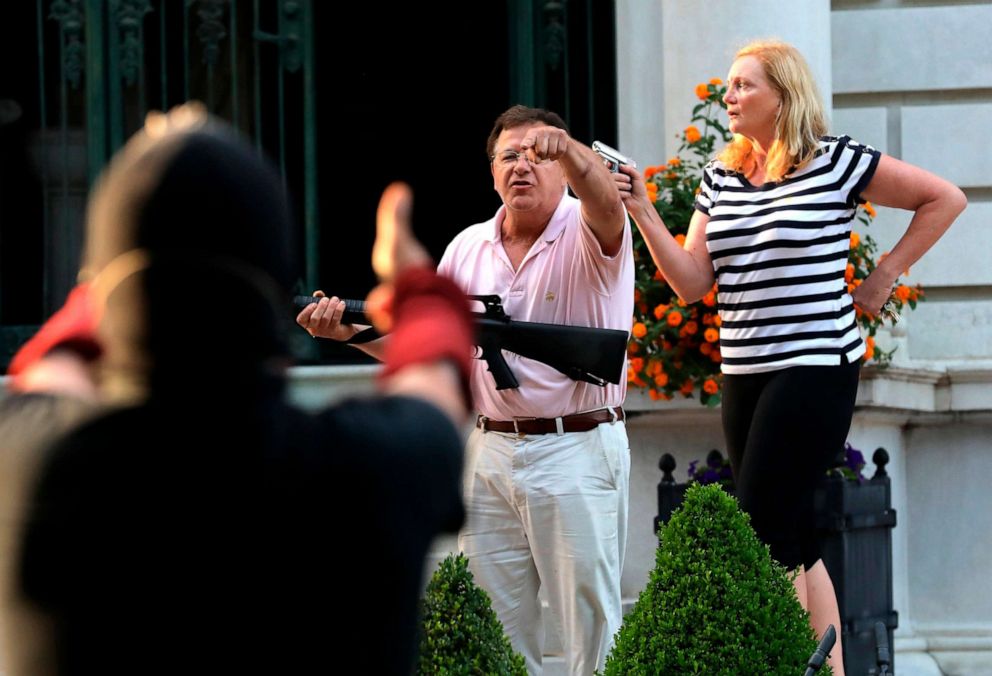
The McCloskey's initially released a statement through their attorney saying they supported the BLM movement and touted a "long-standing commitment to protecting the civil rights of clients victimized at the hands of law enforcement." But after President Trump contacted them directly, the McCloskeys seemed to have a change of heart about the movement.
"These radicals are not content with marching in the streets. They want to walk the halls of Congress, they want to take over, they want power," Mark McCloskey said in a joint speech he and his wife gave at the RNC Convention. "This is Joe Biden's party. These are the people who will be in charge of your future and the future of your children."
Patricia McCloskey added, "They're not satisfied with spreading the chaos and violence into our communities. They want to abolish the suburbs altogether by ending single-family home zoning."
Support eroding as BLM's popularity grows
Abdullah, who is also a professor of Pan-African studies at California State University, Los Angeles, suspects it is more than a coincidence that the attacks against BLM have grown as the movement's popularity has widened and its activities have included a massive push to get people to vote in the November Election.
“I think that it would be really naive of us to think that we were going to have a goal of upending an oppressive state without experiencing some of that oppression," Abdullah told ABC News. "You can’t say the system of policing is fundamentally unjust, that we want to reimagine and transform public safety without that system of policing kind of doubling down and entrenching itself and doing what it’s done since the creation of the system. It targets the people, it targets the groups that attempt to transform the world."
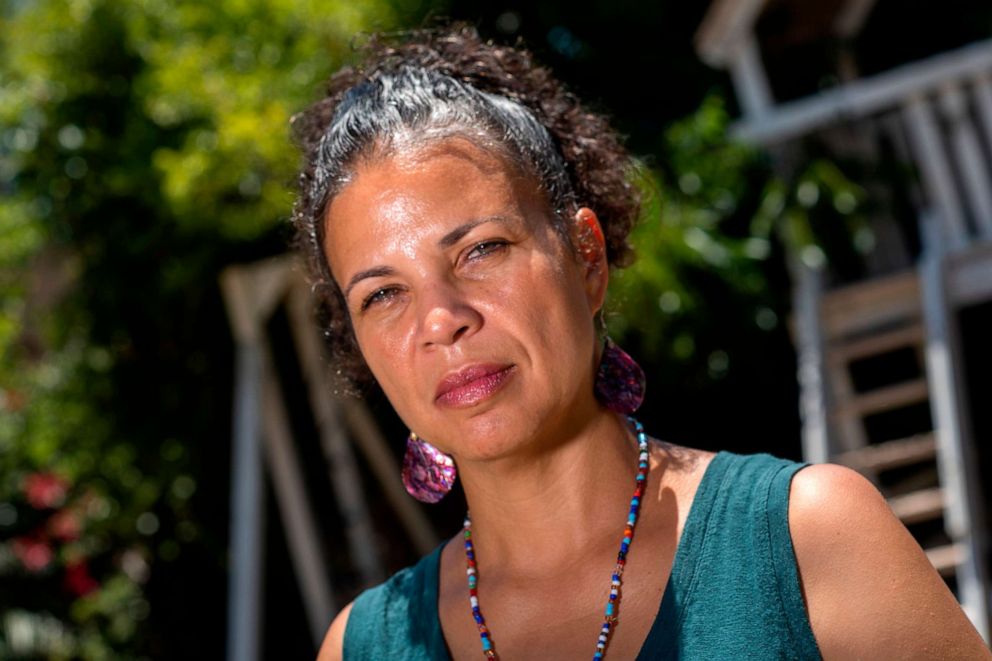
The BLM movement was launched in 2013 following the acquittal of George Zimmerman, the white neighborhood watch member, in the fatal 2012 shooting of Black teenager Trayvon Martin, who Zimmerman mistook for a prowler.
In July, an ABC News/Washington Post poll showed that 63% of Americans supported the BLM movement and 69% agreed that Black people and other minorities are denied equal treatment in the criminal justice system.
Along political party lines, support for BLM varies widely. The poll found that while 92% of Democrats, including 91% of white Democrats, support the movement, 28% of Republicans and 62% of independents feel the same. By ideology, support for BLM ranges from 93% of liberals to 70% of moderates and 34% of conservatives.
But the BLM backlash appears to be eroding the popularity the movement spawned over the spring and early summer.
A poll released by the Pew Research Center in mid-September, showed 55% of U.S. adults express at least some support for BLM, down from 67% in June. The poll showed that 29% strongly support the movement, down from 38% three months earlier.
History repeating itself
Andrew Young, former mayor of Atlanta and ambassador to the United Nations, told ABC News that similar attacks were waged against the civil rights movement in the 1960s.
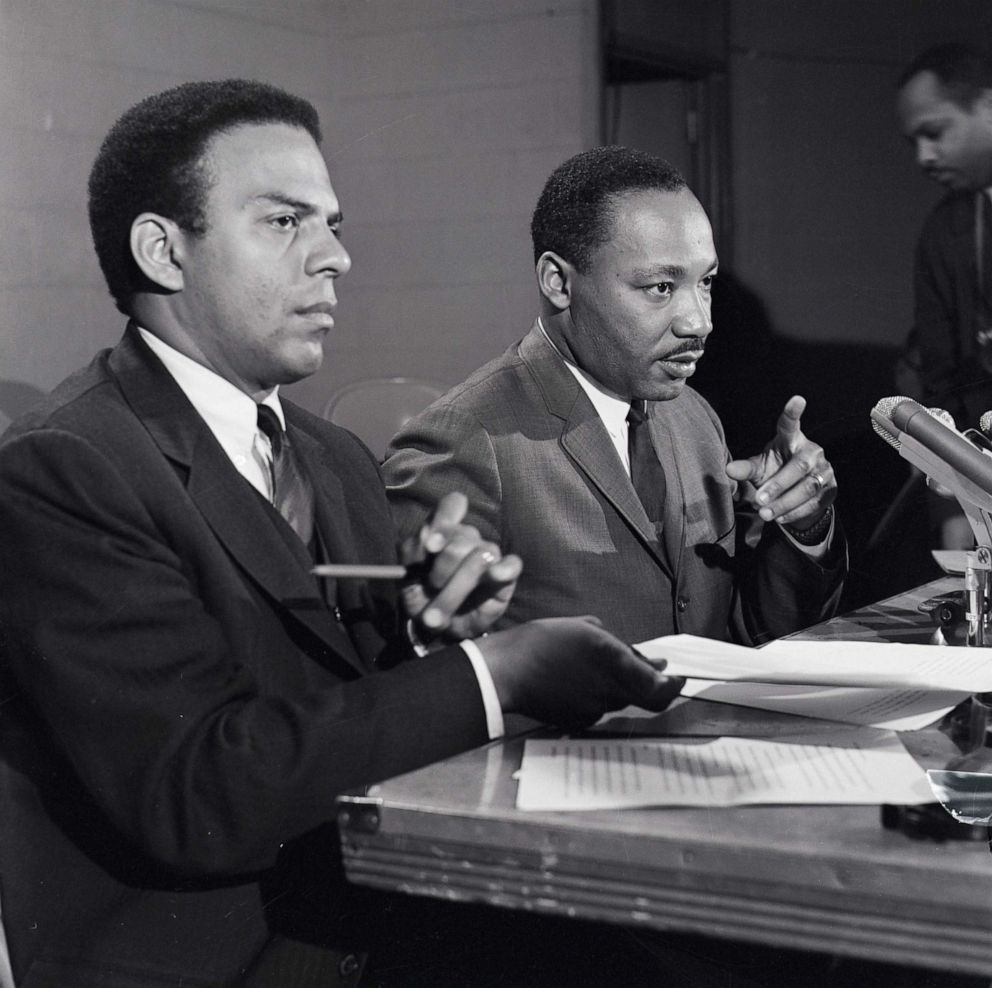
"We were always being called communists. There was a serious backlash. Martin Luther King’s picture was up on billboards all over the South," said the 88-year-old Young, who was part of King's inner circle and was with the civil rights icon when he was assassinated on the balcony of the Lorrain Motel in Memphis on April 4, 1968.
He said that when he first ran for Congress in Atlanta in 1970 and lost, two years after King's death, he was subjected to racist attacks.
"One of the campaigns against me was that if Andrew Young is elected, the Black Panthers are going to get your daughter," Young, who ran again Congress in 1973 and won, told ABC News.
Young said that during the civil rights marches in the South "agent provocateurs" were hired by white supremacist groups like the Ku Klux Klan, and sometimes the police, to disrupt the peaceful protests by creating havoc.
"People paid kids to disrupt the marches and to break windows. And once you get a few people starting something it gets out of hand," Young said.
"I’m not saying that the police are responsible for the violence now, but neither was Black Lives Matter," he said.
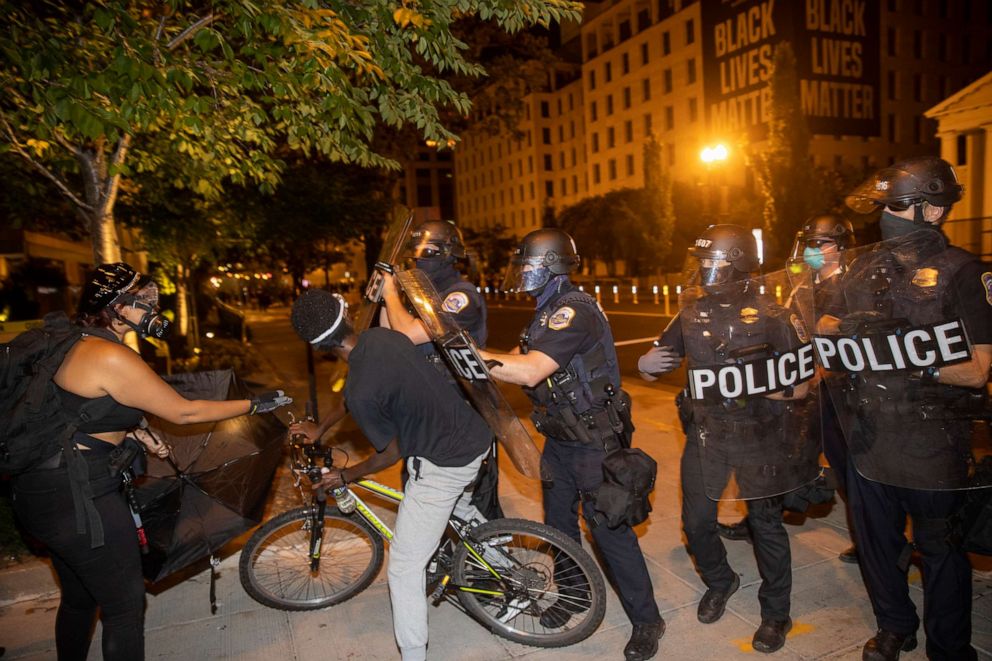
He said that over the summer he attended a BLM protest in Atlanta and saw for himself how quickly a group of agitators turned a peaceful protest into a violent one.
“There was a massive movement of Black and brown and white people together that were marching peacefully in Atlanta. And then I saw some kids ... some of them were dressed in black. They were on skateboards and they came behind the Black Lives Matter movement, moving in the opposite direction, but they went through a row of police cars and they smashed in all the windows.
“Now those were two distinct groups of people and I think what the president is doing is trying to bring it all together and make it one movement," Young added.
'Backlash is much larger and more dangerous than words'
Abdullah alleges that the words of President Trump and his allies against BLM have prompted violence against her and other organizers of the movement.
In August, Abdullah, a single mother of three, was the target of a "swatting incident," in which a police SWAT team was sent to her home after a 911 dispatcher took a call from a man who claimed he was holding people hostage at her home and demanded $1 million in ransom. She said she obtained a copy of the 911 call and that the caller, who was never identified, made derogatory comments about BLM.
"Police arrived at my house with assault rifles, a helicopter was overhead. They pointed the assault rifles in the window at me," Abdullah said. "It terrorized us and deeply, deeply traumatized my children."
She said that following the swatting incident, death threats against her increased.
"It's important to remember that the backlash is not just about words and narrative, it's about threatening actual lives," Abdullah told ABC News.
Several protesters across the country have been severely injured by people who deliberately drove their vehicles into the middle of demonstrations.
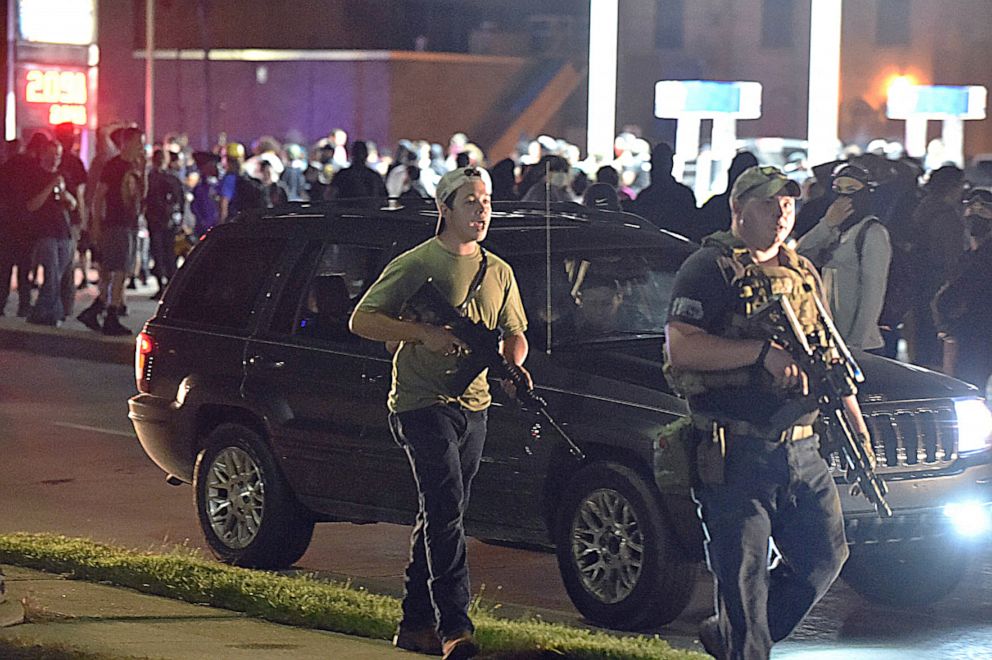
On Aug. 25, Kyle Rittenhouse, a white teenager, allegedly shot and killed two protesters during a demonstration in Kenosha, Wisconsin. Rittenhouse, of Illinois, and other armed men claimed they went to Kenosha to help police keep the peace after an officer shot and paralyzed a Black man named Jacob Blake.
Rittenhouse, who is fighting extradition from Illinois back to Wisconsin to face charges, has yet to enter a plea.
Despite the attacks, protesters like Nia Miranda say they have pledged not to stop fighting for justice. She said she sees the Black Lives Matter movement at a turning point and with help from thousands of white supporters has come within reach of its goal of achieving significant change in policing in America.
"Before this moment happened, I used to think that it was just Black people who were fighting this fight," Miranda told ABC News. “But after this specific moment and being on social media and marching myself, and seeing how many different people of different races, different religions, different tax brackets were out there all for the cause of fighting against injustice, I know this time we’re going to have a successful ending. Even if it takes some time, I’m OK with that."





